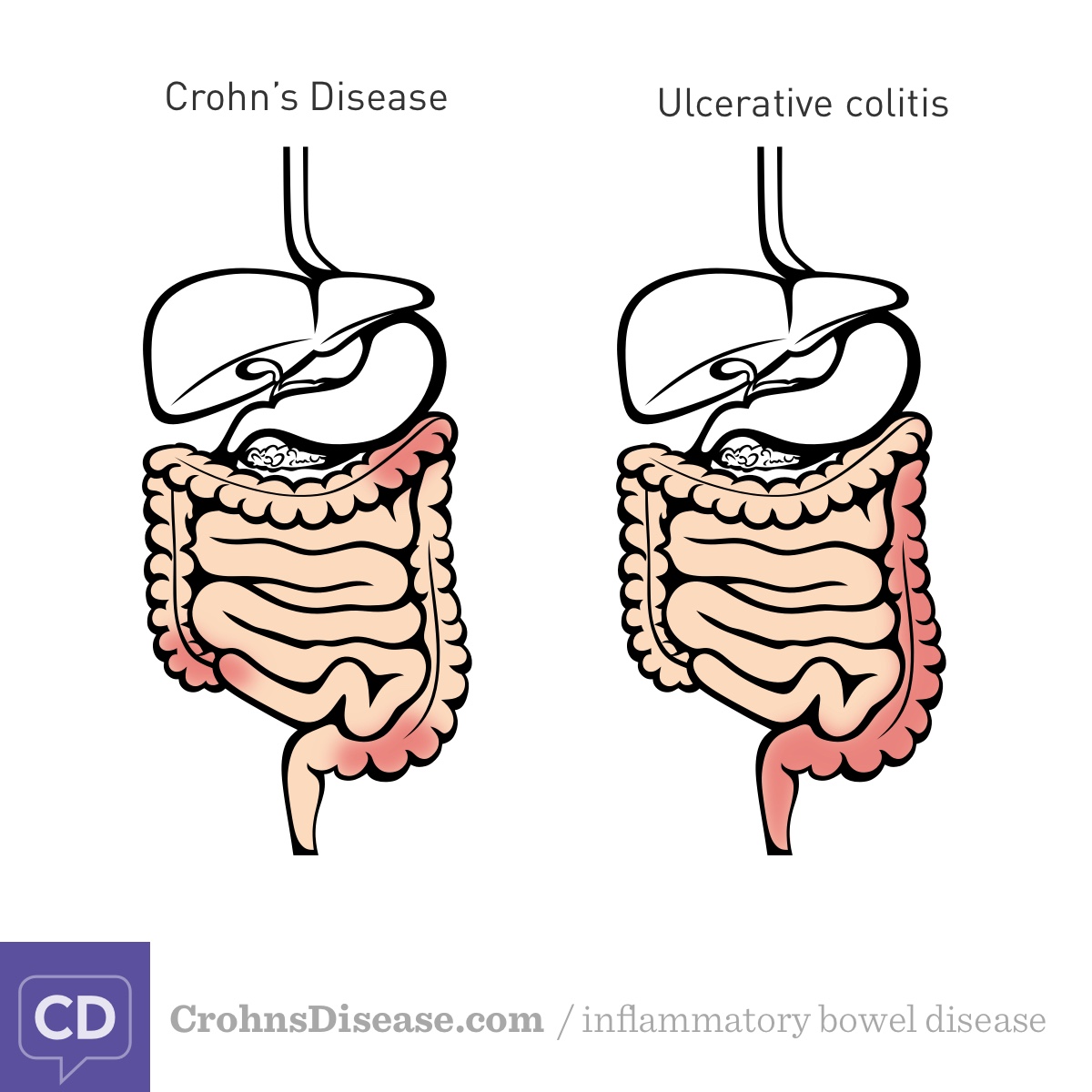What Is Ulcerative Colitis?
Reviewed by: HU Medical Review Board | Last reviewed: March 2024 | Last updated: March 2024
Ulcerative colitis is a chronic (long-term) inflammatory disease. It affects some or all of the large intestine, also known as your colon.1
There are different types of ulcerative colitis. Doctors look at how much of the large intestine is affected to figure out the type. The types include:1
- Ulcerative proctitis: inflammation of the rectum
- Proctosigmoiditis: inflammation of the rectum and a section of nearby colon
- Left-sided colitis: inflammation of the rectum and parts of the colon on the left side of the body
- Pancolitis: inflammation of the entire large intestine
Featured Forum
View all responsesUsually, ulcerative colitis begins at the rectum and spreads toward the large intestine. It can cause little sores to form in the colon. The little sores are called ulcers. These ulcers may become filled with pus or mucus.2-4
What are the different types of inflammatory bowel disease?
Ulcerative colitis is part of a group of disorders called inflammatory bowel disease (IBD). Another common IBD is Crohn’s disease. These 2 IBDs have similar symptoms but there are some differences.5
Figure. Crohn’s disease vs. ulcerative colitis
In adults, ulcerative colitis is more common than Crohn’s disease. Ulcerative colitis affects the large intestine and rectum. Crohn’s disease can affect any part of the digestive tract. People with Crohn’s disease have patchy areas of inflammation along the digestive tract. People with ulcerative colitis have inflammation in o1 continuous area.2,5
Who is at risk for getting ulcerative colitis?
We do not know what causes ulcerative colitis. But we know that genes play a role. People who have a close family member with ulcerative colitis are 4 times more likely to get diagnosed.2-4
The microbiome might also play a role. There are many different bacteria and other tiny organisms (microbes) that live within our body. These microbes are important for our health. People with ulcerative colitis have changes in the microbiome of the colon. Scientists are looking for a link between these changes and ulcerative colitis.2,3
There might be a link between ulcerative colitis and nonsteroidal anti-inflammatory drugs (NSAIDs) like ibuprofen. These drugs might cause ulcerative colitis or make the symptoms worse. But more evidence is needed to know for sure.2-4
What are the symptoms of ulcerative colitis?
The symptoms of ulcerative colitis may start slowly or happen suddenly. In the beginning, the symptoms may come and go in episodes. Typical symptoms of ulcerative colitis are:1-5
Some other symptoms include:1,2
- Weight loss
- Fever
- Urgency (having to use the bathroom very often)
- Tenesmus (feeling the need to use the bathroom but not being able to go)
How is ulcerative colitis diagnosed?
Your doctor will use a colonoscopy with biopsy to confirm whether you have ulcerative colitis. A colonoscopy uses a tiny camera to look through your colon. A biopsy involves taking a small piece of the colon for testing.2,3
Your doctor may also do some blood tests. Most people with ulcerative colitis have specific antibodies. Antibodies are our body’s way of fighting certain diseases. The blood tests might also check for:2,4
- Anemia
- Low levels of a protein called albumin
- Other signs of inflammation
Your doctor may also take a stool sample to rule out other causes for the symptoms.4
How is ulcerative colitis treated?
There is no cure for ulcerative colitis. But different medicines are available that can reduce the severity of the symptoms. These include:4,5
- Aminosalicylates (most commonly used)
- Corticosteroids
- Drugs that suppress the immune system
- Biologic drugs
In severe cases, surgery may be needed to remove parts of the colon.3
What are some of the complications of ulcerative colitis?
Managing ulcerative colitis requires meeting with your doctor regularly. The disease, the severity of your case, and the drugs used to treat you can cause serious complications. Some of these are:3,5
- Severe bleeding
- Swelling of the large intestine (megacolon)
- Perforation (hole) in the colon
- Colon cancer
Certain foods may also make the symptoms worse. Try keeping track of what you eat to see if certain foods make your symptoms worse.3
